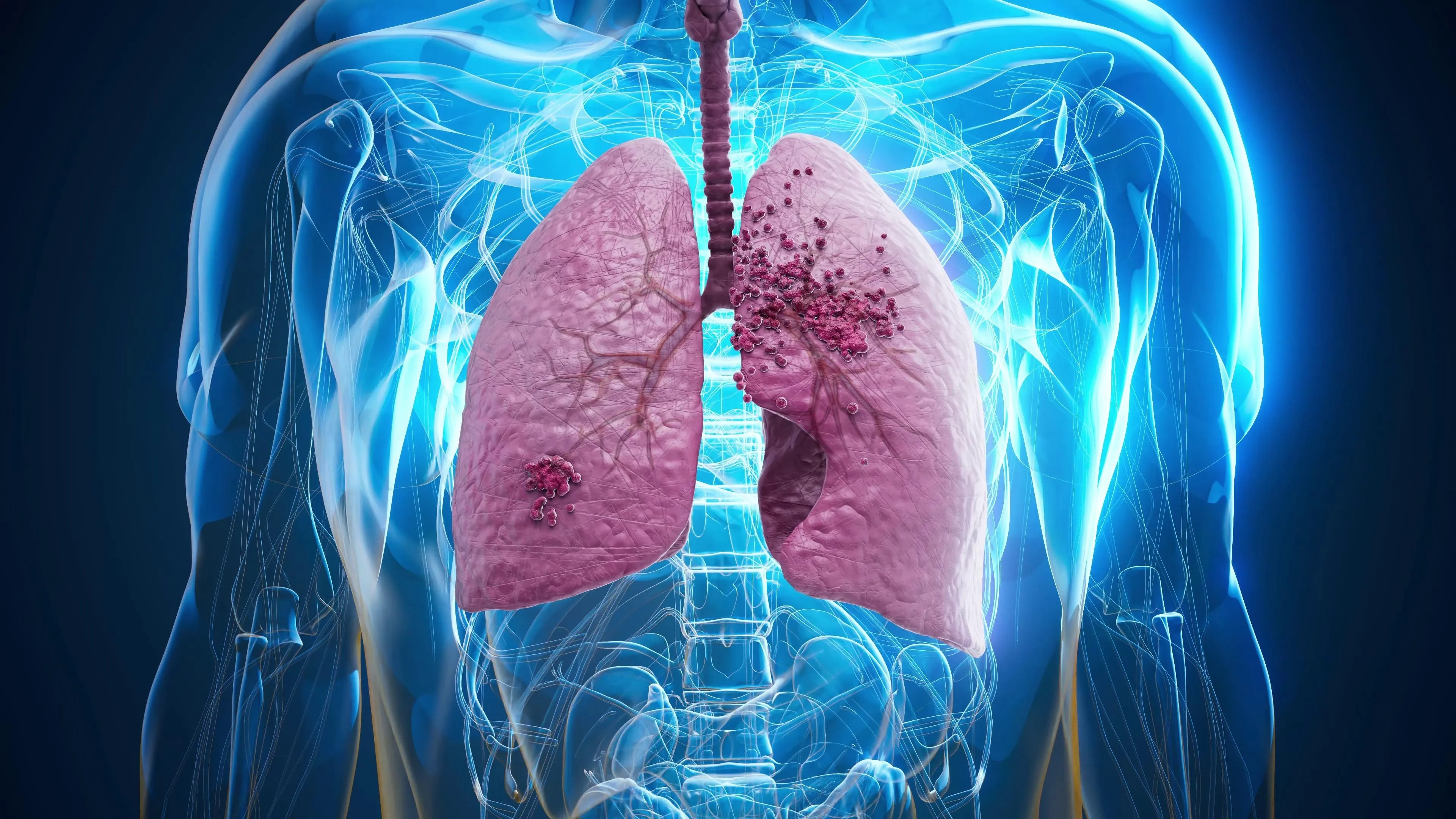Human Health
Oncofibro is dedicated to advancing breakthrough therapies in lung fibrosis, cancer, and chronic viral infections—addressing critical unmet needs through advanced therapeutic development.

Idiopathic Pulmonary Fibrosis (IPF)
Oncofibro is dedicated to addressing the unmet needs in idiopathic pulmonary fibrosis—a progressive, life-limiting lung disease with limited treatment options. Our research focuses on developing precision-targeted therapies that aim to slow or halt fibrotic progression, preserving lung function and improving patient outcomes.

Lung Cancer
We are advancing next-generation therapies for lung cancer, including non-small cell lung cancer (NSCLC) and other difficult-to-treat subtypes. By leveraging translational medicine and our expertise in tumor biology, we work to develop therapies that target specific molecular drivers and resistance mechanisms, aiming to extend survival and quality of life for lung cancer patients.

Viral Infections
We are advancing next-generation immunotherapies for viral infections, including COVID 19, SARS, Influenza (H5N1) and RSV, by addressing the underlying immune dysfunction that allows viral persistence. Through translational research and deep understanding of T cell exhaustion in viral infections, we aim to reprogram dysfunctional immune cells and restore durable antiviral immunity—offering the potential for functional cure in patients with lung infections.
Broadening the reach
While our primary focus remains on lung cancer, viral infections, and lung fibrosis, the platform technology’s unique ability to restore immune function and enhance cell survival/proliferation positions it for broader therapeutic applications:
- Other Solid Tumors – Including HCC, colorectal, pancreatic, ovarian, glioblastoma, sarcoma, bile duct, esophageal, laryngeal, mesothelioma, peritoneal, and other high-mortality cancers where immune exhaustion severely limits current treatments.
- Chronic Viral Infections – Such as HBV and other conditions where T-cell anergy and exhaustion hinder effective viral clearance.
- Hematopoietic Stem Cell Transplantation (HSCT) – Tatmyctofusp also supports hematopoietic stem cell applications, with potential use across cord blood, G-CSF–mobilized peripheral blood, and bone marrow sources. Transient ex vivo exposure to Tat-MYC enhances HSC survival by upregulating Akt–Bcl-2 pro-survival pathways and reducing GrzB-mediated stress injury during mobilization and conditioning. This results in more resilient HSCs, enabling faster engraftment and improved immune reconstitution following HSCT.
Tatmyctofusp use in hematopoietic stem cell (HSC) applications is currently in preclinical development. To advance this program into a first-in-human Phase I study, we are actively seeking licensing partners, philanthropic funding, and grant support.
